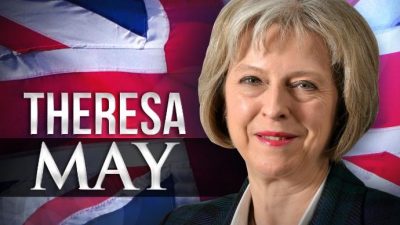Terror as Opportunity: Exploiting the London Attacks

The hallmark of any administration worth its corruptly curing salt is making hay while the sun shines its searing rays. Not long after the slashing and running down was taking place in London, moving from London Bridge to Borough Market, the tweets of blame and fire were already coming through.
That nasty sovereign known as social media was already agitating. One of the biggest themes: the rollback on human rights protections, and the marketing of pure fear. Across the Atlantic, President Donald Trump was adding his little rough side to the debate.
“At least 7 dead and 48 wounded in terror attack and Mayor of London says there is ‘no reason to be alarmed!’”

A spokesman for Sadiq Khan (image on the right) was hoping to deflect the Trump tweet as misdirected spittle, preferring to focus on the job at hand:
“The mayor is busy working with the police, emergency services and the government to coordinate the response to this horrific and cowardly terrorist attack and provide leadership and reassurance to Londoners and visitors to our city.”
In short, Khan had “more important things to do than respond to Donald Trump’s ill-informed tweet that deliberately takes out of context his remarks urging Londoners not to be alarmed when they saw more police – including armed officers – on the streets.”
Alarm, however, can be quarried and built upon. The attacks on London Bridge and Borough Market has enabled Prime Minister Theresa May to revive the inner Home Secretary in her, one replete with suspicions and hostility towards free agents and choice in society.
With only hours to go to the polls, May has been promising flintier measures against extremists, notably in terms of controls using risk as a key indicator. Even in the absence of concrete evidence for prosecution, the prime minister fancies making the lot of the state easier in how to control suspects and limit liberties.
More had to be done to
“restrict the freedom and the movements of terrorist suspects when we have enough to show they present a threat, but not enough evidence to prosecute them in full in court.”
If that nuisance known as human rights laws were
“to stop us from doing it, we will change those laws so we can do it.”
Chillingly, this language would sit rather easily with the next fundamentalist reformer keen to ignore human rights in favour of undeviating scripture and the pure society.
Her words read like a laundry list of security promises and heavy-handedness, much of it pointed in the direction of the Human Rights Act, never a beloved instrument of those keen on trimming civil liberties:
“I mean longer prison sentences for people convicted of terrorist offences. I mean making it easier for the authorities to deport foreign terror suspects to their own countries.”
Tory lawmakers are also pondering the prospect of curbing communications and access to devices, curfews and restrictions on associating between claimed extremists. May is also open to extending the period for which a terrorist suspect can be held without trial. (The current number is 14 days.)
Many of May’s promises are marked by contradiction. The spirit of austerity still haunts the Tory drive to perform its protective duties for Britannia. It wants a fully functioning and efficient security apparatus, but prefers to keep it cash strapped and hobbled.
Khan has reminded the prime minister that talk of robust security is all dandy, until you realise that cuts of up to 10 to 40 per cent in police numbers have been implemented, much of this presided over by May herself when she held the post of Home Secretary.

Steve Hilton (image on the left), former prime minister David Cameron’s strategy chief, decided to also weigh in on that point, suggesting that May throw in the towel for her sloppiness. It was the prime minister, he charged, who had to be held
“responsible for [the] security failures of London Bridge, Manchester, Westminster Bridge.”[1]
Terror suspects had eluded the counter-terror web; radicalisation fears had been ignored.
May’s proposed legal measures will be subjected to judicial scrutiny when the time comes. Labour, when in office, found the issue of control orders a problem, despite their championing by such figures as former home secretary David Blunkett. Blunkett, a sort of amateur fascist, even insisted that May consider restoring such orders in the wake of the suicide bombing in Iraq by British ex-inmate of Guantánamo, Jamal al-Harith.
What is being proposed is a milder variant of permanent surveillance and indefinite control over someone not accused of any crimes, but highlighted as a threat. This is actuarial risk assessment at its worst. Coupled with the badgering of telecommunications companies to do their bit in undermining privacy, and hectoring companies to downgrade their encryption standards, and the world looks ever bleaker. All this will keep human rights lawyers in clover for sometime.
Dr. Binoy Kampmark was a Commonwealth Scholar at Selwyn College, Cambridge and lectures at RMIT University, Melbourne. Email: [email protected].
Note
[1] https://twitter.com/SteveHiltonx/status/871611939310379008
Featured image: kxii.com

